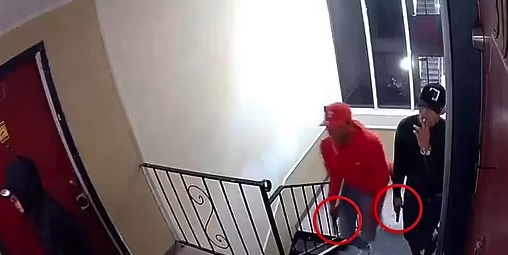Footage has been seen on news outlets and social media about the Venezuelan gang Tren de Aragua (TdA), as law enforcement officials warn of an impending gang war on U.S. soil. The footage, recorded on July 28, shows a violent altercation in the courtyard of the Aspen Grove apartments in Aurora, Colorado, one of three properties now under the gang’s control. The scene quickly escalates as gunshots ring out, leaving residents ducking for cover—a grim testament to the lawlessness brought by TdA’s rapid expansion.
Hidden among the nearly one million Venezuelan migrants who have entered the U.S. during the Biden administration, TdA has quietly infiltrated major cities across the country, from Miami to New York. According to federal authorities, the gang has unleashed a wave of violence, and their foothold is growing at an alarming rate. For the first time, law enforcement officials are publicly discussing the group’s future plans, with John Fabbricatore, former director of Immigration and Customs Enforcement (ICE) for Colorado, warning of an imminent gang war. “They’re setting up faster than MS-13 did,” Fabbricatore told DailyMail.com. “There’s about to be a big gang war.”
TdA has reportedly taken over three apartment complexes in Aurora, exploiting and terrorizing their migrant neighbors, many of whom fled Venezuela in search of safety. Aspen Grove, the site of the July shooting, has since been shut down by city officials, but other properties, such as Whispering Pines and Edge of Lowry, remain hotspots of TdA activity. Graffiti tagging the apartments as TdA territory marks the gang’s dominance, and the criminal operations within these buildings are staggering. A report from a law firm representing one apartment management company detailed allegations of murder, extortion, and even child prostitution linked to the gang.
Prostitution, one of TdA’s primary revenue streams, is central to their operations. Fabbricatore explained how the gang uses this illegal enterprise to create a network for selling drugs. “Prostitution is a big money-maker,” he said, adding that the gang lures clients in and shakes them down for more money, or introduces them to the drug trade. In the apartments, young girls are being trafficked, further fueling TdA’s expansion and tightening their grip on local communities.
The emergence of TdA in the U.S. has shocked federal law enforcement, who were caught off guard by the gang’s speed and sophistication. Unlike MS-13, which has been notorious for violence but lacked organization, TdA operates with a well-structured hierarchy, with connections extending back to Venezuela. Fabbricatore and other experts have drawn stark comparisons between TdA and Mexico’s most dangerous drug cartels, noting that TdA is already functioning as a highly organized transnational criminal organization (TCO). Their influence is spreading not only through migrant communities but threatens to spill into wealthier neighborhoods, as Fabbricatore ominously hinted: “There are some million-dollar homes not far from where those apartment complexes are. How long do you think it will be before they go there?”
Law enforcement has made some progress. Recently, the Aurora Police Department arrested 10 TdA members, although this comes after initial denials from local authorities about the presence of a gang problem. Retired FBI agent Dan Brunner, who once led a task force against MS-13, told “DailyMail.com” that TdA is “MS-13 on steroids.” According to Brunner, TdA’s rapid expansion and tactical precision make them far more dangerous than their predecessors.
As the gang tightens its control over more urban areas, local and federal officials are scrambling to catch up, though the road ahead looks perilous. The federal government has already designated Tren de Aragua as a transnational criminal organization, placing it on par with the world’s most notorious cartels.


